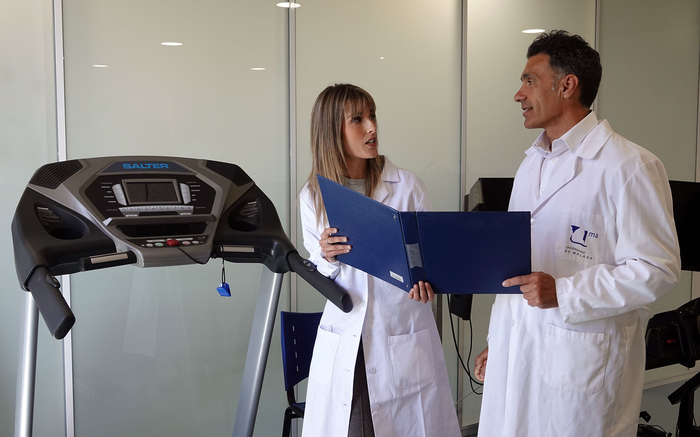It is globally estimated that 1 out of 10 people who have suffered from COVID-19 presents symptoms that persist for more than 12 weeks, according to the findings from the REACT-2 study from Imperial College of London. This is precisely why the term “Long COVID” is used to define those signs –so far more than 200 different signs have been identified– that persist after acute coronavirus condition.
How should these patients be assessed? Which is the most suitable treatment approach? To answer to these questions, scientists from the Department of Physiotherapy of the University of Malaga have developed an assessment proposal comprised of different types of questionnaires, functional tests and exercise tests, aimed at both clinicians and researchers.
The objective of this guide, which has been published in the scientific journal Medical Hypotheses, is to be included as part of the assessment of a Long COVID patient in order to make decisions and guide his/her treatment individually.
“After reviewing much of the existing literature, we can assert that tiredness, fatigue, post-exertional malaise and, to a lesser extent, respiratory symptoms are the predominant signs in these patients," says researcher Cristina Roldán Jiménez, co-author of this paper, together with professor Antonio Cuesta Vargas, coordinator of the Group of Clinimetrics in Physiotherapy, both members of IBIMA-Plataforma BIONAND.
The expert explains that post-exertional malaise is characterized by symptoms that worsen with exertion and, moreover, is not relieved by rest, so she demands to consider this possible lack of exercise tolerance in Long COVID patients.
“Physical exercise might not be a secure and effective strategy for these patients," says the researcher, who warns of the existing controversy in this respect around the most appropriate therapeutic approach.
This is why the treatment and management approach for Long COVID patients proposed by these researchers of the UMA is based on the etiology of the symptoms that each one of them presents individually.
The study is currently pending the technical approval of the PEIBA (Andalusian Biomedical Research Ethics Portal) so that, in conjunction with Internal Medicine, it can be validated in a sample of real patients.
